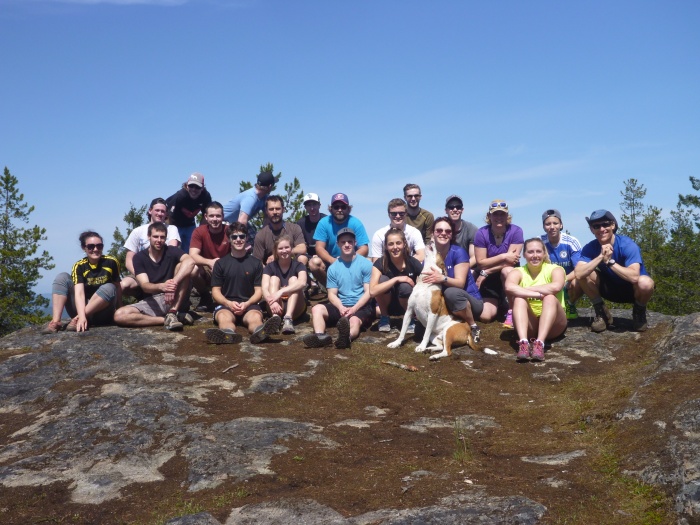There’s real-world learning, and there’s real-world learning. Nevin Harper, chair of Camosun’s Bachelor of Sport and Fitness Leadership program at the Pacific Institute for Sport Excellence (PISE), is about to introduce 20 of his students to that very reality as they embark on a field learning trip to the mountainous regions of Bolivia.
Departing on May 12 for a three-week South American journey to measure the effects of high altitudes on human health and performance, Harper’s students are preparing themselves for physical and emotional tests, as well as what could be the experience of a lifetime.

“This trip came about from my desire to offer students some other kind of real-world learning beyond the classroom,” says Harper, an adventure guide and experiential educator for the past 25 years. “I was drawn to doing something that was bigger and more engaged in the world.”
Harper has been working with Camosun International since last November to plan the trip, which will include not only treks in the Andes Mountains to altitudes as high as 5,320 metres, but also visits to small villages, a service project in the Yungas Region of Bolivia, and adventure sporting activities such as mountain biking and zip lining.
“This trip is a once-in-a-lifetime opportunity that Camosun has presented to us, so it’s a pretty big chance to gain some international experience in our field,” says Alex Sessa, one of the PISE students going on the field trip. “And on a personal note, it’s the first time I’ll be outside of North America.”
While the trip will feature some sightseeing and sport adventure, it will also be a lot of strenuous work, says Harper, who warned the students that high-altitude hikes are not to be taken lightly.
“The primary things that we’ve tried to prepare them for would be their ability to deal with change. The likelihood of our itinerary unfolding day-to-day as planned in South American, in the Andes, is unlikely,” he says. “We’ll have physical and emotional stress on this trip, guaranteed, and it’s by design because it’s an adventure sport trip.”
Sessa, for one, is up to the challenge, although he says he’s a bit unsure of what to expect. Although the students have been training for the trek, and have even done some artificial training on machines that simulate altitude, Sessa himself has never been above 2,500 feet.
“We’ve been doing hikes and things, but there’s really no way to train for that kind of elevation until you’re actually up there,” he says.
Sessa is one of the few students returning right after the trip. Others are staying on for as long as one month to travel around Bolivia, Peru, and other countries.
“I’m looking forward to it very much,” says Sessa. “I think it will be a springboard to other future career plans and travelling plans.”
Harper’s fellow faculty member Tony Webster, who has a background in biochemistry and exercise physiology, will also go on the trip. Harper is confident his students will gain a newfound understanding of the world on this journey. After more than two decades doing sport education-related travelling, he knows the effect such trips can have.
“It will be rewarding for them,” he says. “It hasn’t become blase for me, after doing it for decades. I know the potential for the trip. This is a lifetime experience to travel in a developing nation and for students to reconsider who they are in this world, and the opportunities and lifestyle that they have compared to others.”
